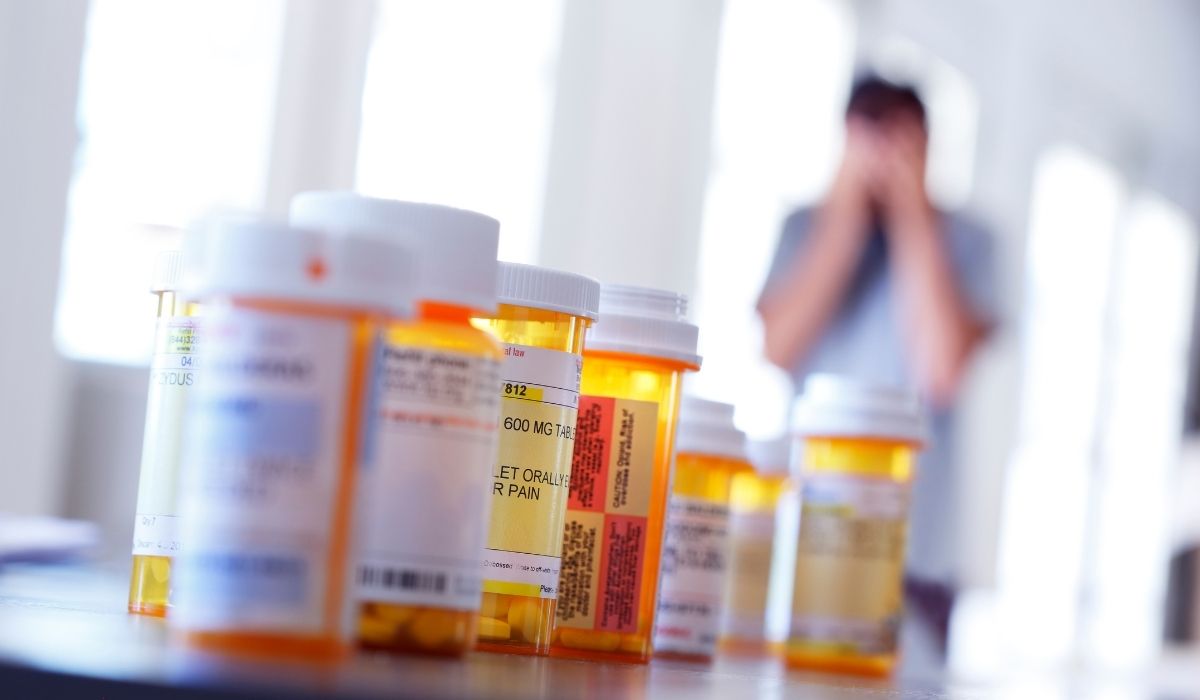What Are the Risks for Heroin Addiction?
Heroin addiction is very dangerous. It affects your brain, body, and how you feel. If you or someone you know is using heroin, it’s important to learn the risks and get help. Heroin is a powerful drug made from morphine. It can make people feel very good at first—but it also causes serious harm.

Why Is Heroin So Addictive?
Heroin is a narcotic and works like a strong analgesic (pain reliever). It quickly changes how the brain and central nervous system feel pain and emotions. This strong effect causes substance dependence, meaning the body starts to need heroin to feel normal.
Over time, people who use heroin often lose control and continue using even when it causes harm to health, behavior, and relationships.
Who Is at Risk for Heroin Addiction?
Anyone can become addicted, but some people are at higher risk:
People With Pain or Injury
Those with injuries may be given opioid pain medicine like morphine or oxycodone. If misused, these can lead to heroin use later.
People With Mental Health Problems
Conditions like depression, insomnia, or suicidal ideation can increase the chance of turning to drugs.
People With a History of Substance Abuse
Using alcohol, tobacco, or other drugs can make it easier to get addicted to heroin too.
Teens and Young Adults
Young people are at high risk due to impulsivity, mood changes, and peer pressure.
Health Risks of Heroin Use
Using heroin can hurt your body in many ways.
Brain and Nervous System
Heroin changes cognition, or how you think and make decisions. It can damage the nervous system, slow down breathing, and cause long-term changes in the brain.
Heart and Blood
Injecting heroin can lead to bleeding, blood infections, or damaged veins. It also raises the chance of infection like hepatitis C or HIV when needles are shared.
Liver and Lungs
Heroin use may damage the liver, cause lung problems, or lead to deadly infections.
Skin and Injection Problems
Injecting heroin under the skin can lead to abscesses, open sores, or infections. Some people suffer from collapsed veins.
Mental Health and Mood Risks
Heroin affects how people feel. While it may bring short-term pleasure, long-term use often leads to:
-
Depression
-
Trouble sleeping (insomnia)
-
Sudden mood swings
-
Loss of interest in daily life
-
Suicidal ideation
The drug tricks the brain into needing more to feel okay. Over time, this leads to deep dependence and emotional pain.
The Danger of Overdose
A heroin overdose is when someone takes too much and their body can’t handle it. This can cause:
-
Slow or stopped breathing
-
Blue lips or nails
-
No response or wakefulness
-
Death
The Centers for Disease Control and Prevention (CDC) says opioid overdose is a big cause of death in the U.S. today.

Signs of Heroin Addiction
Here are signs that someone may be addicted to heroin:
-
Pinpoint pupils
-
Slurred speech
-
Strange sleeping patterns
-
Weight loss
-
Track marks or bruises from injection
-
Acting sleepy or “nodding off”
-
Stealing or lying to get more drugs
Addiction also causes problems at home, school, or work.
The Risk of Relapse
Even after quitting, many people struggle with relapse—which means using heroin again. This is because the brain remembers how heroin made it feel. Stress or sadness can trigger cravings.
That’s why good treatment and ongoing support are important for recovery.
How Heroin Addiction Affects the Body
Heroin damages many body systems:
-
Lungs: Risk of pneumonia and trouble breathing
-
Liver: High risk of hepatitis
-
Brain: Poor memory, slow thinking, and poor cognition
-
Blood: Risk of infection and disease
These effects can be long-lasting, even after quitting.
Heroin Use and Other Drugs
Many people who use heroin also use other drugs like alcohol, fentanyl, or sleeping pills. Mixing heroin with these makes the risk of overdose even higher.
Some people take too much without realizing the dose is too strong—especially if mixed with other opioids.
Why People Don’t Get Help
People may not seek help for many reasons:
-
They are scared of detox (removing drugs from the body)
-
They worry about money or insurance
-
They feel ashamed
-
They don’t know where to go
But there are many treatment centers, hotlines, and support groups ready to help.
Help and Treatment for Heroin Addiction
Detox
The first step is detox, where the drug leaves the body. It may feel bad, but it’s a necessary first step.
Medications
Doctors may use methadone, buprenorphine, or naloxone to help. These help reduce cravings and block the high of heroin.
Therapy and Support
Talking to a counselor, joining a group, or going to a treatment center can help people understand their addiction and stay strong.
Staying Off Heroin
This is called abstinence. It means saying no to heroin and finding healthy ways to deal with pain or stress.
Heroin and the Brain: What Medical Experts Know
Experts in pharmacology, neurology, and medical education say heroin changes how the brain handles reward and pain. Once addicted, the brain wants heroin more than anything else.
Learning how it affects the central nervous system helps doctors find better ways to treat it.
What the Statistics Say
-
The CDC reports tens of thousands of deaths every year due to opioid overdose
-
Many people start with pain pills and move on to heroin
-
Most users are young adults, but addiction affects all ages
Epidemiology (the study of health and disease in groups) helps us understand and stop this crisis.
How to Get Help
If you or someone you know is using heroin:
-
Talk to a doctor or school nurse
-
Find a local treatment center
-
Call a help hotline
-
Tell a trusted adult
Don’t wait. Heroin addiction can be deadly, but recovery is possible with the right help.

Seeking Treatment? We Can Help!
We work with PPO Out of Network Health Insurance Policies
If you or a loved one are struggling with mental health challenges or substance abuse, reach out to Mountain Sky Recovery today. Our team of compassionate professionals is here to support your journey towards lasting well-being. Give us a call at 951-498-5412. Visit SAMHSA for more information.



